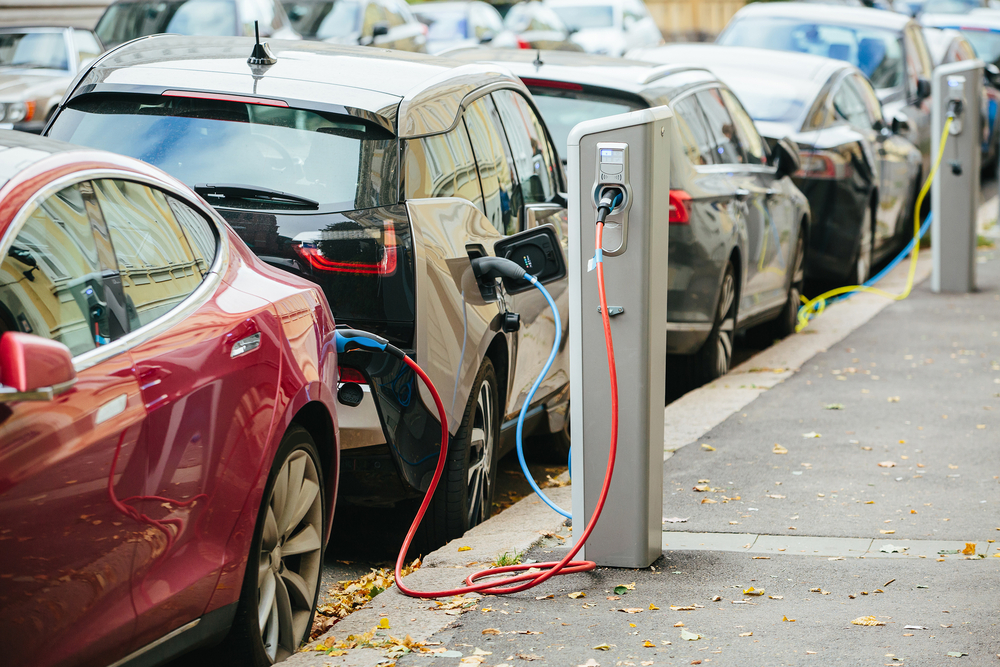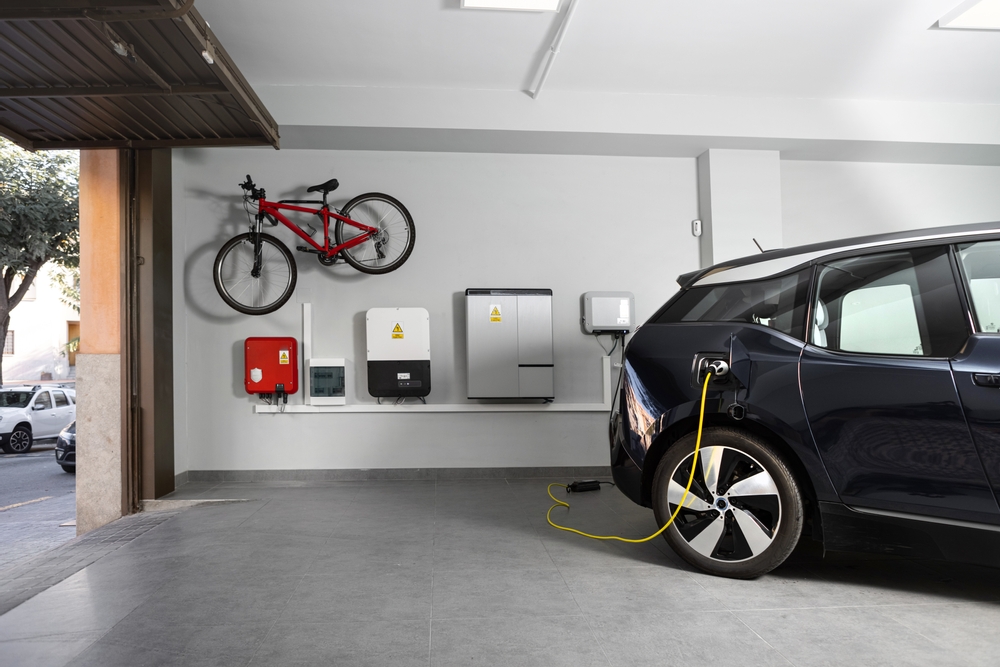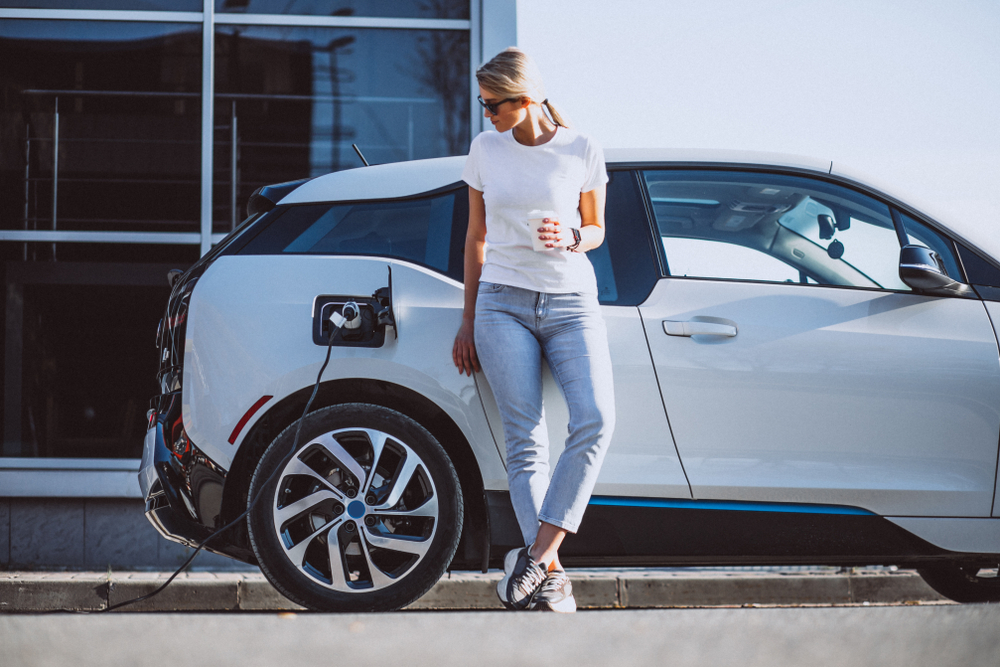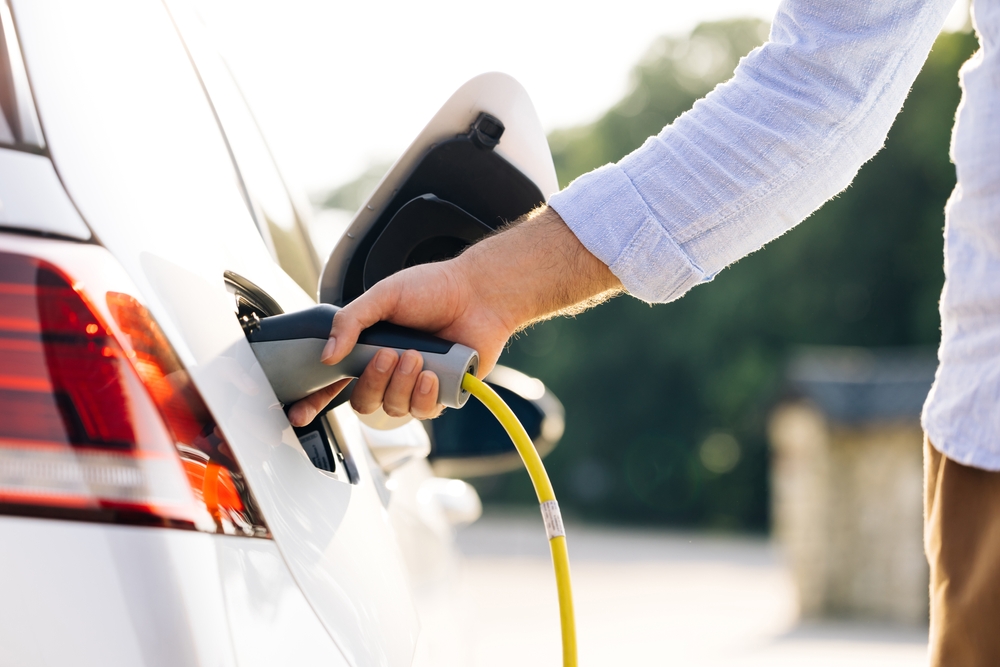Before you take the plunge and switch to an EV, you’re probably wondering how long it takes to charge an electric car battery?
The answer is it all depends on several factors like the vehicle’s battery size and the speed of the charging point.
This article will provide valuable information about EV charging and highlight the many factors that influence charging speed.
How Long Does an Electric Car Battery Take to Charge?
It can take as little as 15 minutes or longer than 12 hours to charge an electric car battery depending on the battery size and speed of the charging point. If you’re using a three-pin plug and your home’s electricity supply, it could even take as long as 36 hours.
Big difference, right? That’s because many things influence charging times for electric vehicles. These include:
- Where you’re charging (eg, at a public charging station or at home.)
- The type of charge point.
- The size of your battery.
- How low your battery is when you start charging.
It doesn’t end there, and there are more reasons why a charge can take longer such as unfavourable weather conditions. However, as a general rule, you can work out a battery’s charging time like this:
Battery Size ÷ Charger Speed = Average Time
In that respect, a typical electric car with a 60kWh battery should take around 30 minutes or even less to charge from empty to full at a 150kW rapid charging station. At the same time, it will take an average of 3 hours at a 22kW chargepoint, or up to 8 hours using a 7kW public charger.
If all this seems a bit daunting, don’t worry. Charging your EV is relatively simple once you know how. Below, we’ll explain the kind of charging times you can expect for your EV depending on the size of the battery and where you’re charging it.
How Long Does It Take to Charge an Electric Car Battery at a Public Charge Point?

It all depends on the type of public charge point you’re using. You can charge your vehicle in public in just 15 minutes, or it can take several hours.
In the UK, there are four specific types of public chargers found in most towns and cities. These are:
1. Slow Chargers (3kw/h – 7kw/h)
Also known as AC chargers and normally running at about 3kw/h, you can expect it to take many hours to charge your EV with a slow charger. These days, it’s rare to find slow chargers at public charge points, and they’re generally associated with portable chargers with a three-pin plug that often come with your EV and plug into your domestic supply. For this reason, many EV owners charge their vehicles at home overnight when electricity tariffs are often cheaper than during the day.
2. Fast Chargers (8kw/h – 49kw/h)
This is a popular method of charging which normally uses an AC supply that runs at 7kw/h or 22kw/h. Most dedicated domestic wall boxes run at the lower 7kw/h rate, but you’ll still achieve a full charge twice as quickly as you would with a slow charger. Similarly, the majority of public charge points run at 22kw/h, and they’re commonly found at long-stay public charge stations such as supermarkets, carparks, and in lampposts. However, 22kw/h requires a three-phase electricity supply which makes them a rare and expensive option for home charging. If you do have 22kw/h, expect charging times to be reduced by around half compared to a 7kw/h unit.
3. Rapid Chargers (50kw/h – 149kw/h)
Fast or rapid chargers are commonly referred to as DC chargers, and you’ll often find them at service stations, retail parks, shopping centres, and car parks. This is by far the quickest way of charging your EV, and some of these units can boost a battery’s range by up to 100 miles with just an eight-minute charge.
4. Ultra Rapid Charger (150kW+)
Typically found at service stations, rapid and ultra rapid chargers offer the speediest charging rates. They’re both a great option for longer journeys and if you don’t have long to wait and need to continue your trip. However, if you can stop for longer, a charger with a lower kW is a cheaper option.
Not all electric vehicles are compatible with rapid and ultra rapid chargers. This is dependent on the vehicle’s charging capacity and the type of connector. For instance, most rapid and ultra rapid chargers use the ‘Type 2’ connector, while all EVs also have a maximum limit for charging speed in order to preserve and protect its battery.
Before you set off, you could use a public EV charging cost calculator to work out the time and expense of charging your electric car during your next journey. The table below is based on a Polestar 2 electric car and should be taken as an example only:
| POLESTAR 2 Slow Charger 3kW – 20% to 80% Charge | |
| Charging time | 12.2 hrs |
| kWh added | 37 kWh |
| Miles added | 128 miles |
| Charge cost | £27 |
| Cost per mile | 21.4p |
| POLESTAR 2 Fast Charger 7kW – 20% to 80% Charge | |
| Charging time | 5.2 hrs |
| kWh added | 37 kWh |
| Miles added | 128 miles |
| Charge cost | £27 |
| Cost per mile | 21.4p |
| POLESTAR 2 Rapid Charger 50kW – 20% to 80% Charge | |
| Charging time | 42 min |
| kWh added | 37 kWh |
| Miles added | 128 miles |
| Charge cost | £27 |
| Cost per mile | 21.4p |
| POLESTAR 2 Ultra Rapid Charger 150kW+ – 20% to 80% Charge | |
| Charging time | 41 min |
| kWh added | 41 kWh |
| Miles added | 178.2 miles |
| Charge cost | £29.05 |
| Cost per mile | 16.3p |
As you can see, charging from 20% to 80% at a public charge point can take anything from 41 minutes to more than 12 hours, depending on your battery and the type of charger. Therefore, it’s always important to check the speed of your charger so that you can plan ahead.
How Long Does It Take to Charge an Electric Car Battery with a Home Charge Point?

Charging your EV at home can take many hours depending on the size of the battery. The most common version of a home charge point delivers 7kw/h which adds around 20-40 miles for every hour the car is on charge. In that respect, to charge from 20% to 80% will typically take between eight and 12 hours.
For this reason, many EV owners charge their vehicles overnight using a home charger. This method is also more affordable than using a public charge point, especially if you have an EV-specific tariff with your electricity supplier. EV tariffs offer an affordable way for owners of electric vehicles to charge them at home.
How long does it take to charge an electric car battery with a 3-pin plug?
Most EVs come with a portable charging cable with a 3-pin plug, also called a ‘granny cable’. You charge your vehicle by plugging it into your household mains socket, as you would with an electrical appliance like a kettle.
Slow charging with a 3-point plug can be a lengthy process. Typically, a battery charge from 20-80% could take between 12 and 15 hours, and possibly up to 36 hours for larger vehicles.
While this method can be convenient for those looking to charge their vehicle at home, it isn’t generally recommended because the charging cable can potentially overheat when in use for a long period.
However, if you are planning to charge your vehicle directly with a 3-pin plug, say from a domestic electricity supply, there are things to look out for that can make the process safer, such as:
- The charging area is safe, dry, and free of standing water and other potential hazards.
- The cable doesn’t feel hot to touch when the vehicle is charging.
- The plug doesn’t overheat during charging.
If the above conditions are met, it’s likely to be safe to charge your EV with a 3-pin plug for an extended period of time. While most electric cars get a 3-pin plug charger as standard, bigger modern battery packs mean that most manufacturers recommend using them only as a last resort when no other charging options are available. Nevertheless, if your daily mileage is low, slow charging with a 3-pin plug is an easy way to top up the battery cells overnight. Not only that, but the slow charging rate generates less heat, which is safer and prolongs battery life.
What Else Affects the Time it Takes to Charge My Electric Car?

There are many reasons why your electric car or vehicle may not be charging as quickly as you’d expect. Just like your smartphone, charging your EV isn’t always straightforward, and there are numerous factors to consider.
If it’s taking longer than usual to charge your EV, consider the following:
Battery Size
While larger batteries often provide greater driving range than smaller batteries, it comes at a price. And that price is charging time. A larger battery with a higher kw/h capacity is likely to take much longer to charge than a smaller battery, so it’s worth bearing this in mind.
Battery Level
The battery level at the time of plugging in can make a significant difference to charging speeds depending on whether you’re using a rapid charger or standard charger.
- Rapid charger: The closer you get to a full charge, the slower the charge becomes, and the longer it takes. For instance, if your battery is only 10% full, it will charge quickly. If your batter is at 80% when you plug it in, the charge will be much slower.
- Slow/home charger: Just like your smartphone, your car battery will charge at a steady pace, but slower than it would with a rapid charger.
Capped Charging Rates at Charge Points
Rapid or fast charging isn’t always possible on certain EV models because they can only charge at a specific rate. It’s probably why your electric vehicle is only pulling 80kw/h at a 150kw/h charge point – it simply can’t go any faster
Busy Charge Points
The rate at which a charge point operates can be negatively affected when more than one car is plugged into the same unit. Think of it like trying to fill two cups from the same tap – they’ll fill up eventually, it will just take longer than one cup.
Adverse Weather
Whether it’s your car or your smartphone, batteries in general don’t like cold weather. Therefore, when the temperature drops it’s likely to take longer to charge your EV than it would in warm conditions – even with a rapid charger. Cold weather makes all EVs (and even petrol cars) less efficient, so you’ll get fewer miles for every hour of charging.
Ultimately, the time it takes to charge a car’s electric battery can vary based on the vehicle model, battery size, type of charger, location, and weather conditions. In this respect, it’s always wise to plan ahead so you can charge your EV when it’s not in use. That way, you’ll always be close to a maximum charge and ready to go whenever you need to use your electric vehicle.
If You’re Wondering How Long Does It Take to Charge an Electric Car Battery, You May Also Need EV Insurance
At Keith Michaels, we offer both personal electric car insurance and electric company car insurance for a wide range of vehicles. If you’re looking to protect your EV, contact us today.


